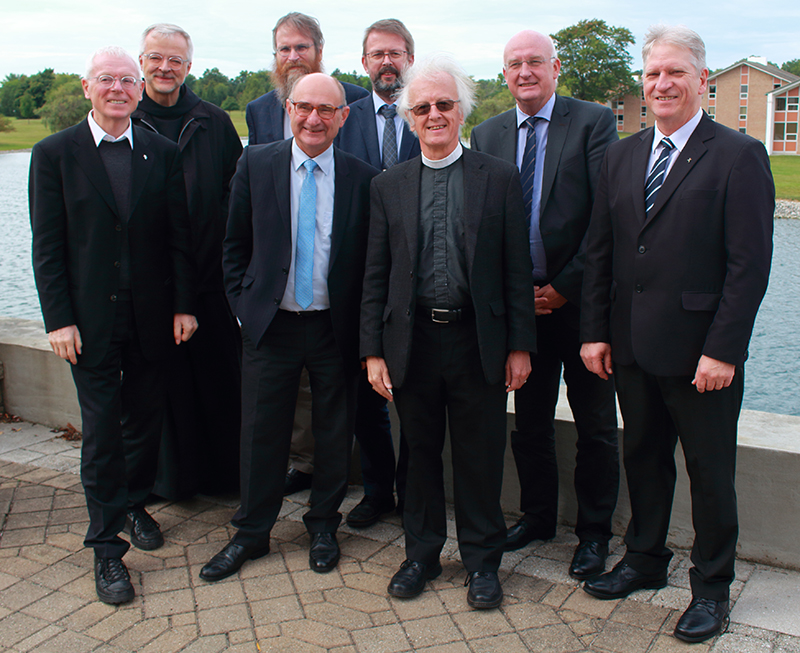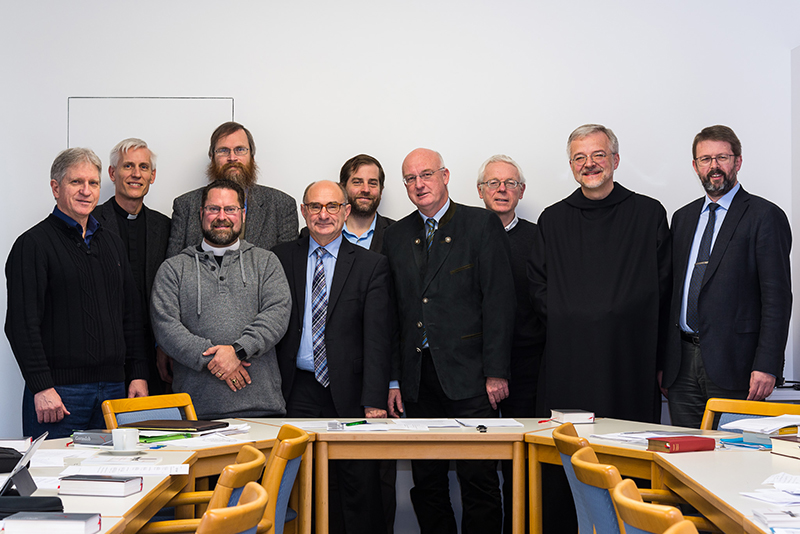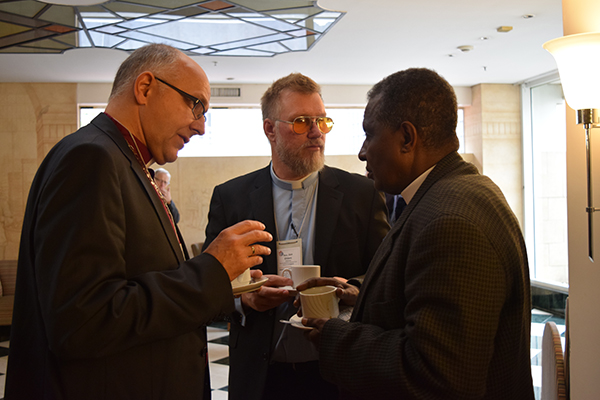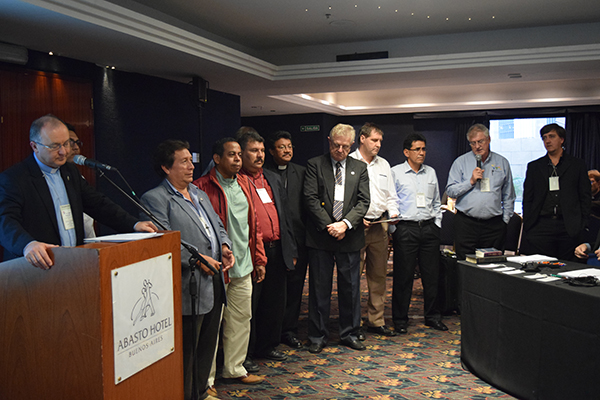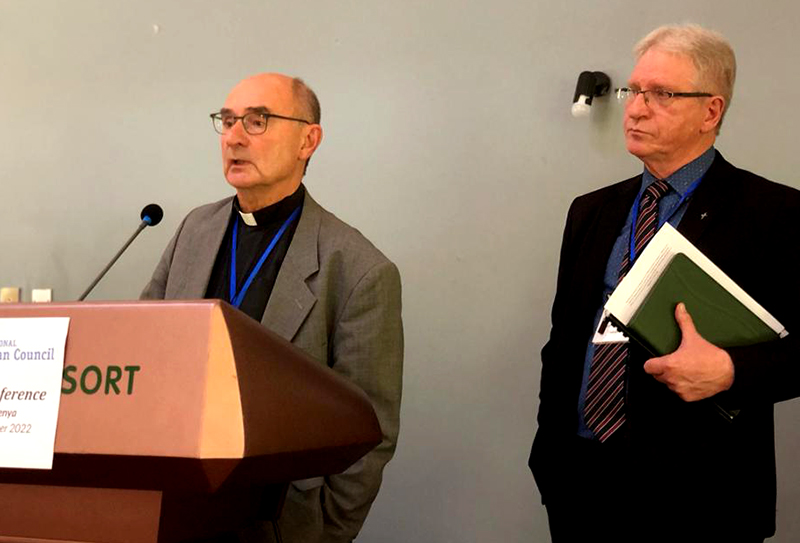
KENYA – On September 16, 2022 the International Lutheran Council’s (ILC) 2022 World Conference adopted a resolution calling for continued ecumenical conversations with the Roman Catholic Church, and approving the Final Report of the conversations of the ILC and the Pontifical Council for Promoting Christian Unity (PCPCU) which was published in 2020.
Discussion of the topic began the morning of September 14, 2022, when Rev. Dr. Werner Klän of Germany reported on the results of the theological discussions between the International Lutheran Council and the Pontifical Council for Promoting Christian Unity (which has recently been renamed the Dicastery from Promoting Christian Unity). The Final Report on the conversations was jointly published by the ILC and the PCPCU in 2021, and found significant convergences between the two traditions in a number of areas.
In a written response to the report, Cardinal Kurt Koch of the PCPCU expressed pleasure at the warming of relations between the churches of the ILC and the Roman Catholic Church. On the basis of the report’s “valuable theological contribution to Concordia Lutheran-Catholic ecumenism”, he went on to encourage “the founding of a joint Concordia Lutheran-Catholic working group” as a forum for continued conversation between the PCPCU (now the Dicastery for Promoting Christian Unity) and the International Lutheran Council. In particular, he suggested such a working group take on the task of providing a joint rereading of the Augsburg Confession (AC) between Roman Catholics and the ILC in the leadup to the 500th anniversary of the publication of the AC in 2030.
ILC Chairman Hans-Jörg Voigt likewise welcomed the results of the international discussions after the Final Report was released, writing that the “process of reception [of the Final Report] in the churches of the ILC has already begun.” He concurred with Cardinal Koch’s suggestion of the founding of a working group, calling it a “very appropriate way of deepening common theological work.”
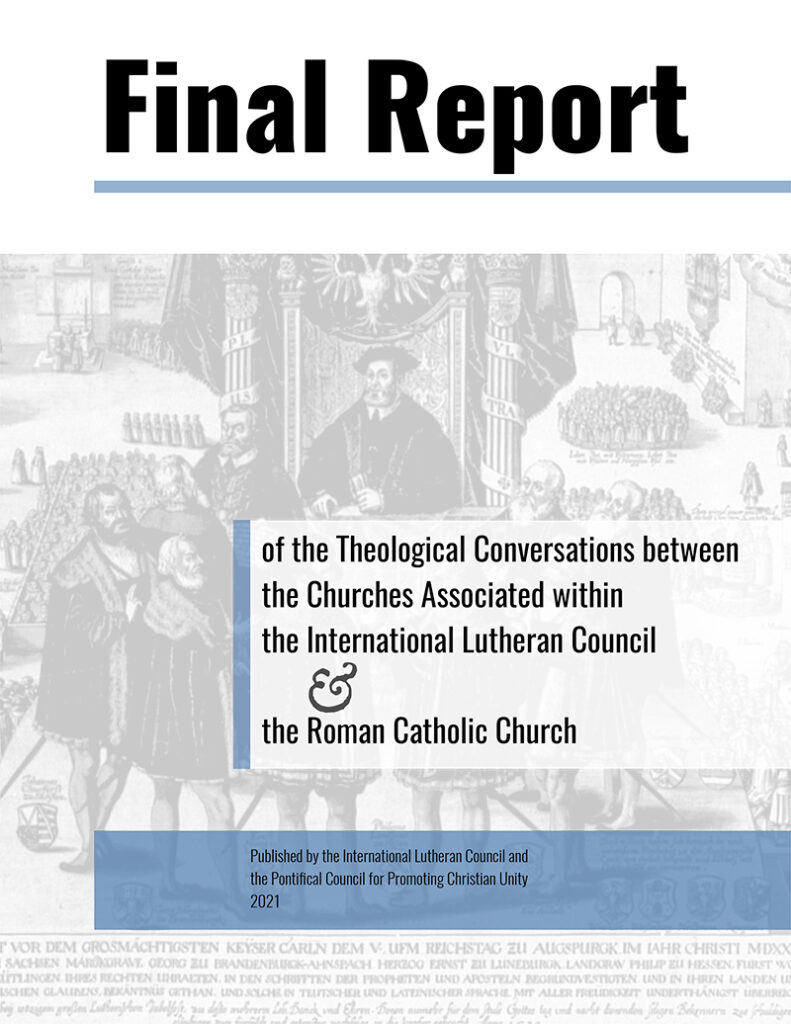
In his report to the conference, Dr. Klän went on to note the positive response to the Final Report already seen in ILC churches in Germany and Australia, while Rev. Dr. Gerson Linden of Brazil—another member of the dialogue group—likewise commented on its usefulness in the Latin American context. Dr. Klän encouraged the 2022 World Conference to receive the suggestions of Cardinal Koch and ILC Chairman Voigt, and adopt a resolution committing to continued ecumenical conversations with the Roman Catholic Church.
That resolution came before the World Conference on September 16, during which time the ILC adopted a resolution “To Approve the Report of the ILC/PCPCU Dialogue Group and to Carry Forward their Work.”
In the resolution, the 27th ILC World Conference notes “its sincere thanks both to the Roman Catholic and the confessional Lutheran representatives in this dialogue for their efforts and preparation of the Final Report.”
“The ILC herewith approves the Final Report and supports the continuation of contacts and conversations in appropriate ways and formats,” it continues.
“The 27th ILC World Conference expresses hope that further theological work be done between representatives of the ILC and the PCPCU in the leadup to the 500th Anniversary of the Augsburg Confession in 2030,” the resolution goes on to say. To that end, it instructs the ILC’s board “to begin planning (including funding appropriation) for our Council to continue this theological engagement between confessional Lutherans and the Catholic Church,” encouraging “particular focus on the issues of apostolicity and catholicity.”
You can download the full resolution here.
———————

 ONLINE – The final report on conversations between the Pontifical Council for Promoting Christian Unity (PCPCU) and the International Lutheran Council (ILC) has now been released.
ONLINE – The final report on conversations between the Pontifical Council for Promoting Christian Unity (PCPCU) and the International Lutheran Council (ILC) has now been released.